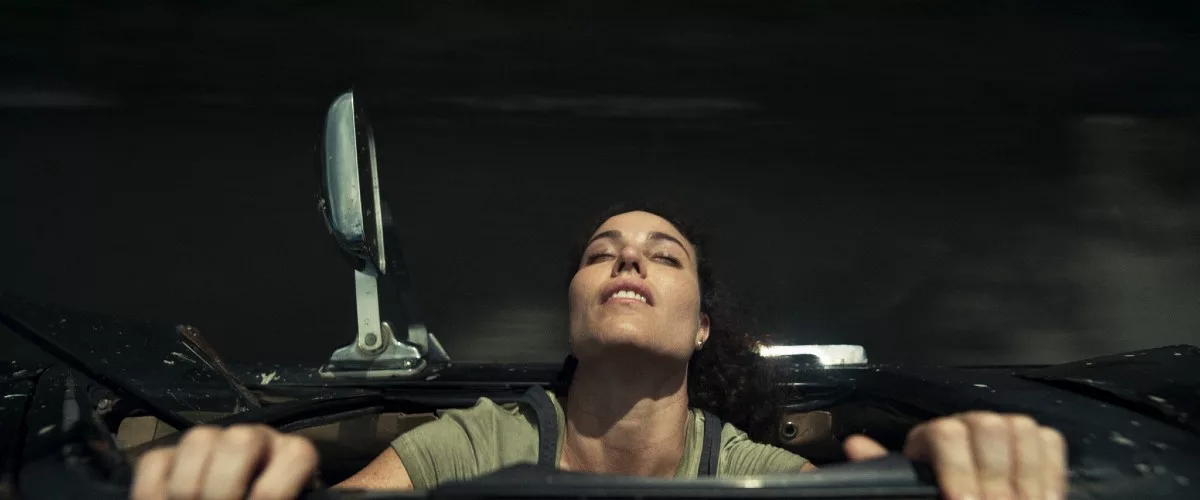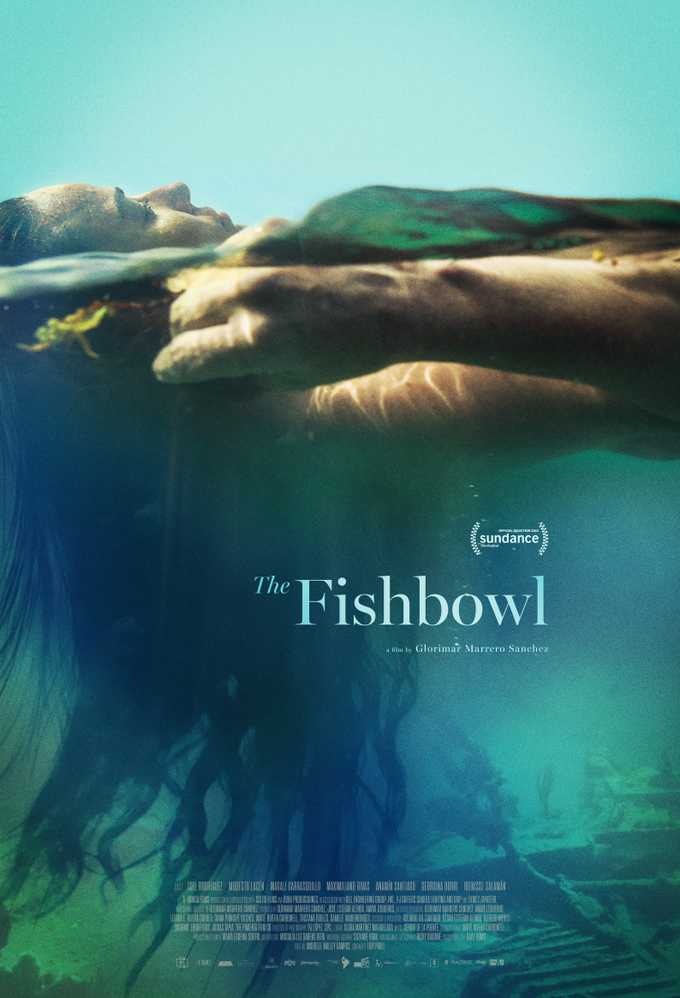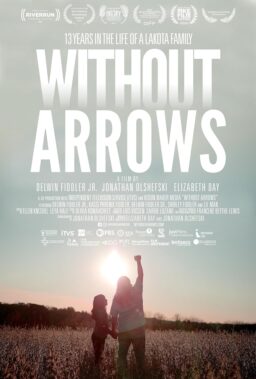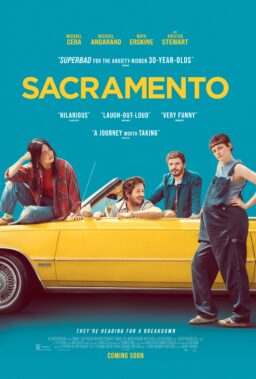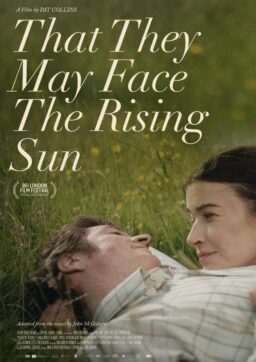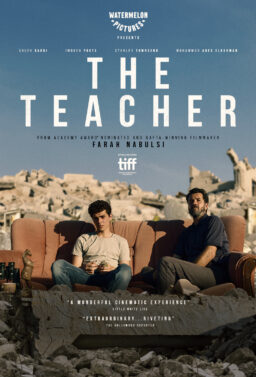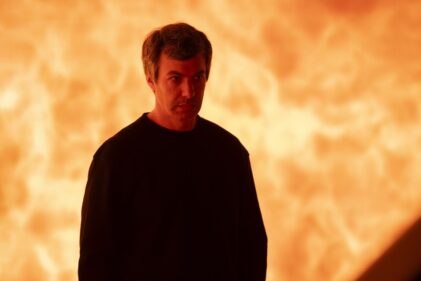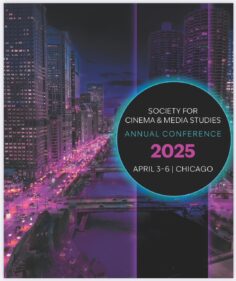“The Fishbowl,” or “La Pecera,” is a meditative movie that locates resonance in its symbolism, tying the story of a woman battling cancer to an island equally marked by disease. The film’s quiet approach doesn’t rely on overworked sentimentality or melodramatic angst. It washes over you, pulling you forward toward its heart through the natural strength of its emotional tide.
This is writer/director Glorimar Marrero Sanchez’s directorial debut, and it begins on an inauspicious note when Noelia (Isel Rodriguez) awakens in her tub from a soothing daydream to find blood seeping from her colostomy bag. This isn’t the first time Noelia’s experienced a leakage. In fact, she’s been trying to hide the troubling signs—like the bleeding, and the pain she feels in her abdomen—away from her protective partner Jorge (Maximiliano Rivas). Noelia wants to continue living life as normal, like going to her friend Nina’s birthday party where she smokes weed, drinks plenty of beer, and sings karaoke under the club’s aquatic teal lighting that seems, for a time, to wrap her in a protective gauze.
No matter how much Noelia wants to avoid her reality, however, the truth can’t be ignored. On a trip to the emergency room she discovers her cancer has metastasized. Jorge thinks more radiation or an experimental treatment in Madrid, Spain may offer a last-ditch solution. But it’s evident, from her sunken, hollowed features to her crumpled posture, that Noelia is tired. Rather than allow Jorge to plead with her, Noelia absconds from San Juan to Vieques, a tiny island that’s a short ferry away from mainland Puerto Rico, to be with her mother Flora (a tender Magali Carrasquillo).
If you’ve ever been lucky enough to visit Vieques, then you know about its postcard worthy scenery: the blindingly blue horizons, the wide white beaches, the roaming horses, the otherworldly bioluminescent bay (when I traveled there back in 2015, I got to soak up these pleasures and rode out a tropical storm). Beneath its beautiful shades, however, is an island scarred by colonialism. A territory of the US, Puerto Rico’s history is inextricably linked with America’s navy. For sixty years America used Vieques as a testing ground for live munitions, which often involved uranium. Unexploded munitions still litter the island, and the pollution wrought by decades of bombardment can still be felt in the health of the populace.
Sanchez’s script deftly places Noelia in the historical context of the island. She returns home partly in search of comfort from Flora and because she feels kinship with an area that feels as poisoned as herself. Tellingly, upon arriving at Vieques, Noelia learns that two residents have recently died. Though Sanchez’s film doesn’t specifically state the cause, we can connect the dots from the toxic environment to many of the people’s fragile health. While living on the island, which is preparing for an approaching hurricane, Noelia becomes politically linked to the locals working to clean up the island of America’s abandoned bombs and sunken ships. She also begins to film her surroundings for a documentary about her own disintegration that she spends much of the film editing.
While the ruminative mood of “The Fishbowl” might cause one to assume they’ll be watching a dour affair, there are life affirming moments of singing and dancing, caressing and caring, witnessing and feeling. Noelia’s personal journey isn’t toward reckless self-harm. She is reaching toward a sense of belonging, where family and community are as powerful as any prescription.
Sometimes her quest, as expressed through Rodriguez’s taxing physical performance, can become too avant garde, relying on swirling imagery meant to visualize the contemplative nature of an ordeal that mixes defiance with acquiescence. But when “The Fishbowl” is locked into Noelia’s moments of choice, when she defines her illness and her response to it, Sanchez’s film manages to not only make an ecological statement, it also sweeps you away.

